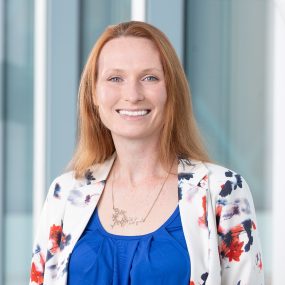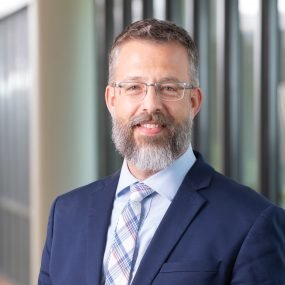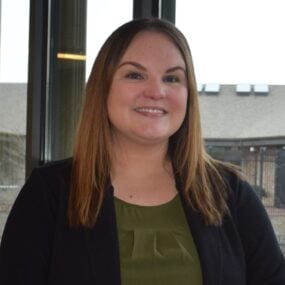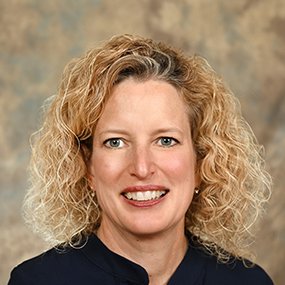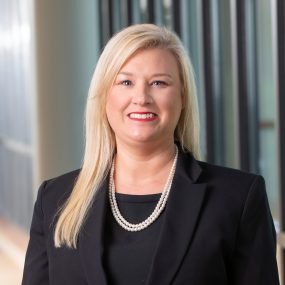Obsessive Compulsive Disorder Treatment
The OCD Treatment Center at Lindner Center of Hope
Obsessive Compulsive Disorder (OCD) is a potentially disabling condition that strikes both children and adults – both men and women. OCD can lead to depression, unemployment, and even physical problems caused by compulsive behaviors. Fortunately, effective treatment can alleviate symptoms and allow patients to regain fulfilling lives.
The OCD Treatment Center at Lindner Center of Hope led by psychotherapists trained in OCD offers proven success. Comprehensive inpatient, outpatient and residential treatment programs, personalized to the needs of each individual, equip patients with effective solutions for managing their condition.
Lindner Center of Hope’s approach to OCD treatment reflects the latest professional advancements and proven combinations of Cognitive Behavioral Therapy (CBT), Exposure and Response Prevention (ERP), and medication therapy. Effective education builds upon therapy to help patients manage OCD.
Obsessive compulsive disorder is an anxiety disorder that can manifest itself in many ways. However, OCD is treatable through a combination of medication and psychotherapy consisting of behavior modification. read, OCD Comes In Many Forms to learn more.
Lindner Center of Hope Specializes in OCD Residential Treatment
OCD residential treatment at Lindner Center of Hope was developed by experienced OCD specialists who serve as guiding members of the core treatment team. Lindner Center of Hope’s OCD residential treatment track is located in a tranquil and therapeutic setting, with single-occupancy patient rooms and 24-hour nursing care. The diverse patient population, more closely resembles a natural environment, which enhances preparedness for the return to a step-down level of care or home. Each patient’s treatment team includes a psychiatrist, licensed clinician and OCD specialist. Lindner Center of Hope has an excellent reputation for successful outcomes with patients suffering with OCD. Individuals suffering from obsessive compulsive disorders (OCD) can begin the road to recovery at Lindner Center of Hope. Read more about Lindner Center’s residential treatment.
Outpatient OCD Treatment Offers Opportunities to Overcome Symptoms
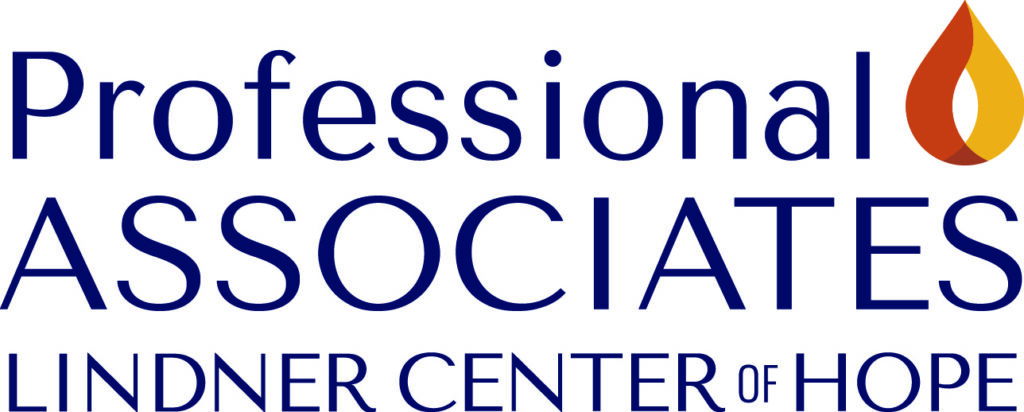 Comprehensive outpatient services led by specialists in the clinical practice group, Lindner Center of Hope Professional Associates (LCOHPA), provide an individualized OCD treatment program that uses a combination of the newest protocols for treating OCD with proven therapy techniques. Adolescents or adults struggling with OCD participate in a meaningful combination of Cognitive Behavioral Therapy (CBT) and Exposure and Response Prevention (ERP) as well as group or family counseling, while still maintaining normal life activities.
Comprehensive outpatient services led by specialists in the clinical practice group, Lindner Center of Hope Professional Associates (LCOHPA), provide an individualized OCD treatment program that uses a combination of the newest protocols for treating OCD with proven therapy techniques. Adolescents or adults struggling with OCD participate in a meaningful combination of Cognitive Behavioral Therapy (CBT) and Exposure and Response Prevention (ERP) as well as group or family counseling, while still maintaining normal life activities.
Who Benefits from Outpatient OCD Treatment
- Patients with OCD who are able to participate successfully in regularly scheduled outpatient visits on their own or with family or support individuals
- Patients who are able to work closely with OCD specialists and psychotherapists to overcome the challenges of OCD
Inpatient OCD and Anxiety Treatment for Individualized and Intensive Care
Inpatient services at Lindner Center of Hope provide scientifically advanced and compassionate care for adults and adolescents needing assessment and stabilization. Specialists and psychotherapists in OCD diagnose and treat patients with an individualized plan tailored to each patient’s unique needs. Multidisciplinary team members deliver a proven combination of Cognitive Behavioral Therapy (CBT), Exposure and Response Prevention (ERP), and medication treatments. The patient’s family also becomes actively involved in the treatment.
Who Benefits
- Adults who are struggling with OCD
- Patients who would benefit from a brief hospitalization for recovery from OCD
Premier Assessment and Residential OCD Treatment
Residential OCD treatment at Lindner Center of Hope was developed by experienced OCD specialists who serve as guiding members of the core treatment team. Lindner Center of Hope’s residential OCD track is located in a tranquil and therapeutic setting, with single-occupancy patient rooms and 24-hour nursing care. The diverse patient population, more closely resembles a natural environment, which enhances preparedness for the return to a step-down level of care or home. Each patient’s treatment team includes a psychiatrist, licensed clinician and OCD specialist. Lindner Center of Hope has an excellent reputation for successful outcomes with patients suffering with OCD.
The patient’s individualized treatment blueprint may encompass:
- Comprehensive evaluation
- Tailored treatment that combines Cognitive Behavioral Therapy (CBT) and medication treatment with specific emphasis and daily practice of Exposure and Response Prevention (ERP) under the guidance of expert therapists
- Thoughtful and supportive approach to medication evaluation and compliance
- Proven treatment of co-occurring conditions
- Illness management and recovery groups
- Mindfulness training
- Spirituality/wellness groups
- Patient and family education
Learn more about the assessment and residential programs here.
Download Residential OCD Brochure.
OCD Support Groups
Lindner Center of Hope is proud to be a founding member of OCD Midwest, local affiliate of the International OCD Foundation, www.ocfoundation.org. The charitable purpose of OCD Midwest is to assist individuals afflicted with OCD in identifying, seeking and gaining access to appropriate support and affordable treatment, and to provide education and information about OCD and related disorders to sufferers, their families and the public. OCD Midwest will aim to increase the public’s knowledge about OCD, and assist those diagnosed with OCD in being recognized as valuable members of their community.
Central Ohio GOALS for OCD
Description: Looking for support? Regardless of your treatment progress the Central Ohio GOALS for OCD serves to bring people together to speak with others who suffer from OCD as well as set individual goals that aid In your recovery.
Meeting Information:
Venue: Worthington United Methodist Church – Browning Lounge located on 2nd Floor
Meeting day and time: 1st & 3rd Wednesdays 6:30pm – 8:30pm
Open To: Adults who have OCD
Fee: Free
Correctly identifying OCD is a crucial first step in effective treatment. Professionals recognized for their leadership in the treatment of OCD at Lindner Center of Hope effectively assist patients in identifying and treating symptoms of OCD and co-occurring conditions, which often include mood disorders such as depression or bipolar disorder. A comprehensive diagnostic assessment is the first step in guiding an individual toward meaningful recovery.
OCD Obsessions
OCD is characterized by an individual experiencing unwanted thoughts, images, feelings, or sensations called obsessions that trigger strong fears or discomfort. Patients may obsess about:
- Contamination by dirt, germs or chemicals
- Harming someone, due to carelessness or while driving
- Losing items
- Doing immoral or blasphemous acts
OCD Compulsions
Individuals with OCD often try to reduce and eliminate the distress caused by obsessions with repetitious thoughts, behaviors, and psychological numbing– called compulsions– such as:
- Constant washing
- Checking and seeking reassurance
- Mental rituals, ongoing counting or repetitive prayer
- Hoarding
- Touching or arranging
Although individuals with OCD typically realize their fears are unrealistic, they are unable to break the pattern of obsessions and compulsions. Without help from specialists like those at Lindner Center of Hope, OCD may lead to depression, anxiety or other co-occurring conditions.
OCD inflicts a staggering toll on individuals, families, and even employers. It is the eighth-leading cause of medical disability for individuals age 15 to 44. Evidence shows that OCD affects men and women equally.
Although leading researchers are still exploring the causes of OCD and co-occurring mental health problems, most believe they may be caused by a complex interaction of genetic, medical, psychological and psychosocial factors:
- Genetics or hereditary factors
- Biology or changes in the body’s chemistry or brain functions
- Certain medications may increase symptoms of OCD in some individuals.
- Behavior-related habits learned over time
- Insufficient serotonin
Fortunately, progressive, proven treatment is available through Lindner Center of Hope where an experienced team of clinicians and licensed psychotherapists experienced in OCD can accurately diagnose and treat a variety of OCD and co-occurring conditions.
Lindner Center of Hope offers solutions for overcoming OCD
Each patient at Lindner Center of Hope begins recovery with a personalized treatment plan that combines concentrated medical therapy, Cognitive Behavioral Therapy (CBT), and Exposure and Response Prevention (ERP). With ERP, the patient, guided by licensed psychotherapists, learns to face obsessions while reducing or eliminating compulsions to neutralize their anxieties.
Studies have shown that ERP helps the brain recalibrate, greatly reducing any anxiety or distress caused by OCD. In addition, CBT helps identify and challenge a patient’s negative thought patterns and encourages behaviors designed to counter-act depressive symptoms. Effective education combined with these therapies further equips the patient and support family with knowledge for continued success at home. Learn about CBT vs DBT.
Progressive Team and OCD Specialists Ensure Effective Treatment
An important part of your treatment is the team at Lindner Center of Hope, recognized for their experience, advanced training and proven results in the treatment of OCD and OCD spectrum disorders.
Team members apply their extensive experience in the treatment of child, adolescent and adult patients with OCD to accurately assess and care for patients with OCD. They guide:
- Exposure and Response Prevention (ERP)
- Individually tailored treatment approach which combines Cognitive Behavioral Therapy (CBT) and medication treatment
- Psychiatric medication evaluation and treatment
Each patient’s multidisciplinary treatment team may also include the following healthcare professionals:
- Primary Care Physicians
- Masters or Doctoral-level Therapists and Psychology Interns
- Social Work Staff
- Registered Nurses, Licensed Practical Nurses and Mental Health Specialists
- Dietitian
- Employment Specialist
- Spiritual Care Coordinator
- Community Psychiatric Support Specialist
Lindner Center of Hope Library: Resources for OCD
Are you ready to manage OCD? Patients suffering from OCD and their families can use these resources to better understand the disorder and take the first steps toward treatment and recovery.
OCD screening
Take this quick self test developed by experts in OCD to help you determine if you may have OCD.
Available for Download
Web Sites
- American Psychological Association
- International Obsessive Compulsive Foundation
- National Institute of Mental Health: OCD
Articles
OCD Comes In Many Forms
Obsessive compulsive disorder is an anxiety disorder that can manifest itself in many ways. However, OCD is treatable through a combination of medication and psychotherapy consisting of behavior modification.
Books
The Imp of the Mind: Exploring the silent epidemic of Obsessive Bad Thoughts.
Lee Baer; 2001 EP Dutton
Overcoming Obsessive-Compulsive Disorder-Client: A Behavioral and Cognitive Protocol for the Treatment of OCD
Gail Steketee 1999, New Harbinger
The OCD Workbook: Your Guide To Breaking Free From Obsessive-Compulsive Disorder
Bruce Hyman and Cherry Pedrick 1999, New Harbinger
Overcoming Compulsive Checking: Free Your Mind from OCD
Paul Munford 2004, New Harbinger
S.T.O.P. Obsessing!: How to Overcome Your Obsessions and Compulsions
Edna Foa and Reid Wilson 2001, Bantam
Brain Lock: Free Yourself From Obsessive-Compulsive Behavior
Jeffrey Schwartz and Beverly Beyette 1997, Regan Books
What to Do When Your Child Has Obsessive-Compulsive Disorder: Strategies and Solutions.
Aureen Pinto Wagner
Helping Your Child with OCD: a Workbook for Parents of Children with Obsessive-Compulsive Disorder.
Lee Fitzgibbons & Cherry Pedrick
Talking Back to OCD: The Program That Helps Kids and Teens Say “No Way” — and Parents Say “Way to Go”
John S. March (Author) The Guilford Press; 1 edition (December 27, 2006)
Buried In Treasures: Help for Compulsive Acquiring, Saving and Hoarding
David F. Tolin, Ph.D., Randy O. Frost, Ph.D. and Gail Steketee, Ph.D.
OCD Screening Questions
Please answer yes or no to each of the following:
- Do you have unwanted and uninvited thoughts, images, feelings, or sensations that trigger strong fears or substantial discomfort?
- Do you find yourself constantly concerned with dirt, germs, illnesses or contamination?
- Do you worry often about harming someone, through carelessness, or about hitting someone while driving?
- Do you have certain mental rituals that you follow to calm yourself, such as repetitive prayer, counting, avoiding certain numbers or colors?
- Do you find yourself continuously re-arranging items or hoarding unnecessary items?
- Do you need to repeat actions (such as turning out lights) or certain rituals that you’ve already completed, just to make sure you “got it right”?
These questions are intended to help a person recognize if he or she may need an evaluation for an OCD. If you are experiencing these symptoms or if you are struggling with OCD, you may benefit from a professional assessment.
For an assessment and consultation with a licensed therapist at Lindner Center of Hope, please call 513-536-HOPE (4673).
